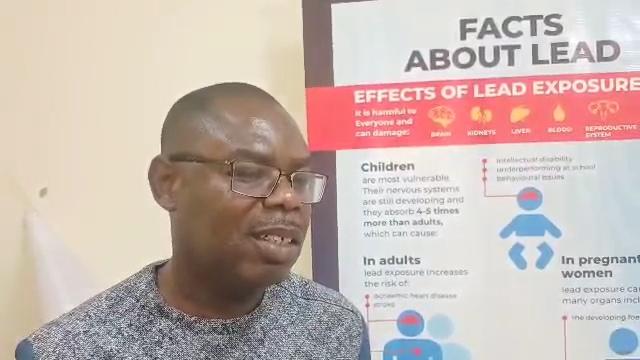
On Dec 22, 2024
The Environmental Protection Agency (EPA), has raised concerns about the continuous use of lead-based paints in Ghana, emphasizing the severe health risks they pose, especially to children and pregnant women.
The concerns were raised during a stakeholder seminar held at Tema, as part of the EPA’s 50th Anniversary Celebration.
The seminar was aimed at creating awareness of the hazards of lead exposure and advocating for the adoption of safer alternatives in paint manufacturing.
Mr. Lovelace Sarpong, Deputy Director of the Chemical and Quality Unit of the EPA, explained that lead-based paints, once popular for their vibrant colours and durability, are now recognised as a major source of lead poisoning.
Mr. Sarpong stressed the need for collective action to eliminate their use and transition to non-toxic substitutes.
“Lead in paints may seem harmless on walls, but as the paint deteriorates, it releases lead-laden dust and particles into the environment, exposing families to significant health risks. Children who ingest or inhale this dust are at a particularly high risk of cognitive and developmental impairments,” he stated.
He also detailed the wide-ranging health effects of lead exposure, including anaemia, kidney damage, and behavioural issues, explaining that children are most vulnerable due to their developing nervous systems, while pregnant women risk passing lead toxins to their unborn children, leading to potential developmental delays and complications.
“Lead poisoning does not have immediate symptoms, which makes it a silent threat. Over time, however, it can manifest in irreversible damage to the brain and other organs. Eliminating lead-based paints is a critical step in safeguarding public health,” he emphasized.
The seminar also highlighted the availability of safer, non-toxic alternatives to lead-based paints, urging manufacturers and regulators to prioritize their production and enforcement.
“Countries around the world are phasing out lead-based paints, and Ghana must not be left behind. The cost of safer alternatives is a small price to pay compared to the long-term health and environmental consequences of lead poisoning,” Mr. Sarpong said.


Comments